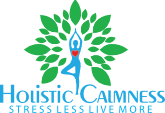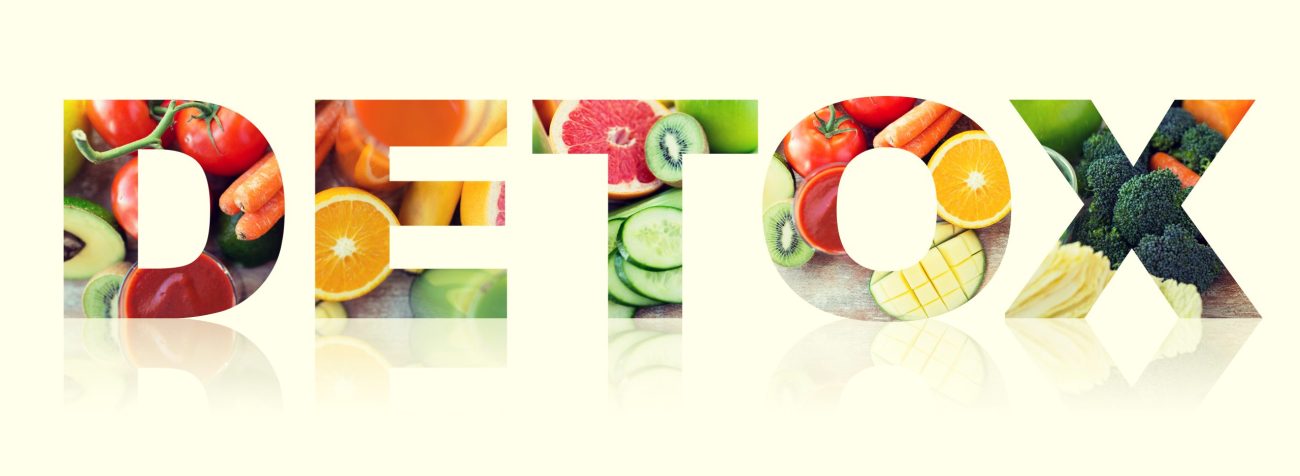Can a Detox Diet Bring Instant Relief for Stress, Anxiety, and Depression?
While detox diets may offer certain health benefits, claiming “instant” relief from stress, anxiety, and depression solely through a detox diet plan may oversimplify the complexity of these psychological conditions. It’s essential to approach such claims with caution and consider a multifaceted approach to mental well-being.
Here’s why:
- Time Frame: True relief from stress, anxiety, and depression typically requires a comprehensive and sustained effort. While adopting a healthier lifestyle, including a balanced diet, regular exercise, and stress-management techniques, can contribute to long-term well-being, immediate relief from these conditions is unlikely to occur solely through a detox diet plan.
- Individual Variability: The effectiveness of detox diets, as well as their impact on stress, anxiety, and depression, can vary significantly from person to person. Factors such as genetics, overall health status, lifestyle habits, and underlying psychological factors play a crucial role in determining how individuals respond to dietary interventions.
- Psychological Factors: Stress, anxiety, and depression are complex psychological phenomena influenced by various factors beyond diet alone. While improving nutrition and supporting the body’s detoxification processes may indirectly contribute to mental well-being, addressing underlying psychological issues and adopting evidence-based therapies are essential components of comprehensive stress, anxiety, and depression management.
- Sustainable Solutions: Detox diets often involve temporary dietary restrictions or extreme measures that may not be sustainable in the long term. Rapid changes in diet can also lead to nutritional deficiencies, food cravings, and potential negative effects on mood and energy levels, which may exacerbate stress, anxiety, and depression in some individuals.
Amidst the growing prevalence of stress, anxiety, and depression in our modern society, detox diets have emerged as a suggested solution to these psychological challenges. Advocates push the benefits of detox diets in eliminating toxins from the body and enhancing mental well-being. However, it’s crucial to approach such assertions with a critical lens, recognizing the nuanced nature of stress-related disorders. While detox diets may offer certain health advantages, they often oversimplify the complexities of conditions like stress, anxiety, and depression. Understanding the multifaceted factors contributing to these psychological states is essential for devising effective interventions. Thus, we embark on an exploration into the intricate interplay between stress, anxiety, depression, detox diets, and the physiological mechanisms underlying them, shedding light on the effectiveness of detox diets in addressing these mental health concerns.
True relief for stress, anxiety and depression typically requires a comprehensive and sustained effort, incorporating various lifestyle factors such as diet, exercise, and stress management techniques. Rapid changes in diet can lead to nutritional deficiencies and exacerbate mental health symptoms in some individuals.
Understanding Stress, Anxiety, and Depression
Stress, anxiety, and depression are complex psychological and physiological phenomena that can significantly impact an individual’s quality of life. While stress is a natural response to perceived threats or challenges, chronic stress can lead to anxiety and depression. Anxiety involves excessive worry or apprehension about future events, while depression is characterized by persistent feelings of sadness, hopelessness, and loss of interest in activities once enjoyed. Various factors contribute to the development of stress, anxiety, and depression, including genetics, environment, lifestyle, and individual experiences.
The Role of Toxins in the Body
Toxins are substances that can harm the body’s cells, tissues, and organs. They may be derived from environmental pollutants, food additives, medications, or metabolic byproducts. While the body has natural detoxification processes, proponents of detox diets argue that these systems can become overwhelmed, leading to toxin accumulation and adverse health effects. However, the extent to which toxins directly contribute to stress, anxiety, and depression remains a topic of debate in the scientific community.
Detox Diet Plans: What Are They?
Detox diets typically involve the consumption of specific foods, beverages, or supplements aimed at eliminating toxins from the body. These diets often emphasize whole foods, such as fruits, vegetables, and lean proteins, while restricting or eliminating processed foods, caffeine, alcohol, and other potentially harmful substances. While proponents claim that detox diets can lead to rapid weight loss, increased energy levels, and improved mental clarity, skeptics argue that the scientific evidence supporting these claims is lacking.
Benefits of Detox Diets for Stress, Anxiety, and Depression Relief
While research specifically linking detox diets to stress, anxiety, and depression relief is limited, certain aspects of these diets may indirectly benefit mental well-being. For example, consuming a nutrient-dense diet rich in antioxidants and phytonutrients can support overall health, including brain function. Additionally, practicing mindfulness and self-care while following a detox plan may help reduce stress, anxiety, and depression symptoms. However, it’s essential to approach detox diets with caution and skepticism, as extreme or restrictive dietary practices can potentially worsen mental health conditions in some individuals.
Components of a Detox Diet Plan
A typical detox diet plan includes various components designed to support the body’s natural detoxification processes. These may include:
- Emphasis on whole, unprocessed foods: Fruits, vegetables, whole grains, and lean proteins are staples of detox diets, providing essential nutrients and fiber to support digestion and elimination.
- Hydration: Drinking an adequate amount of water is crucial for flushing out toxins and maintaining optimal hydration levels.
- Avoidance of certain substances: Detox diets often recommend eliminating or reducing consumption of caffeine, alcohol, refined sugars, and processed foods, which are believed to contribute to toxin accumulation and inflammation in the body.
Tips for Implementing a Detox Diet Plan
If considering a detox diet for stress, anxiety, and depression relief, it’s essential to approach it with caution and mindfulness. Here are some tips for safely implementing a detox diet plan:
- Consult with a healthcare professional: Before starting any new dietary regimen, especially one as potentially restrictive as a detox diet, consult with a qualified healthcare provider or registered dietitian to ensure it’s appropriate for your individual needs and health status.
- Gradual transition: Rather than jumping into a detox plan abruptly, consider making gradual dietary changes over time to allow your body to adjust and minimize potential side effects.
- Incorporate stress-relief techniques: While following a detox diet, prioritize stress-management practices such as mindfulness meditation, deep breathing exercises, yoga, or spending time in nature to support overall well-being.
Healing Plans for Sufferers of Stress, Anxiety, and Depression
In addition to detox diets, individuals experiencing stress, anxiety, and depression may benefit from comprehensive healing plans that address the underlying causes and symptoms of these conditions. Healing plans may include:
- Psychotherapy: Working with a qualified therapist or counselor can help individuals explore and address underlying issues contributing to stress, anxiety, and depression.
- Medication: In some cases, medications such as antidepressants or anti-anxiety medications may be prescribed to help manage symptoms.
- Lifestyle modifications: Incorporating regular exercise, adequate sleep, healthy eating habits, and stress-management techniques into daily life can promote overall well-being and reduce symptoms of stress, anxiety, and depression.
- Social support: Building and maintaining supportive relationships with friends, family members, or support groups can provide valuable emotional support and encouragement.
- Holistic approaches: Exploring complementary and alternative therapies such as acupuncture, massage therapy, yoga, or mindfulness meditation may offer additional benefits for managing stress, anxiety, and depression.
For individuals interested in exploring detox diets further, the following books recommendations that you can find on Amazon may provide helpful insights and guidance:
- “The Detox Miracle Sourcebook: Raw Foods and Herbs for Complete Cellular Regeneration” by Robert Morse, N.D.
- “Detox 101: A 21-Day Guide to Cleansing Your Body through Juicing, Exercise, and Healthy Living” by Jessi Andricks
- “The Beauty Detox Solution: Eat Your Way to Radiant Skin, Renewed Energy, and the Body You’ve Always Wanted” by Kimberly Snyder
- “Clean: The Revolutionary Program to Restore the Body’s Natural Ability to Heal Itself” by Alejandro Junger, M.D.
- “The Detox Diet: The Definitive Guide for Lifelong Vitality with Recipes, Menus, and Detox Plans” by Elson Haas, M.D.
Conclusion
In conclusion, while detox diets may offer some potential benefits for supporting overall health and well-being, the scientific evidence supporting their efficacy for stress, anxiety, and depression relief is inconclusive. It’s essential to approach detox diets with caution and skepticism, especially when seeking relief from mental health conditions. Consulting with healthcare professionals and prioritizing holistic healing plans that address the underlying causes and symptoms of stress, anxiety, and depression is key to achieving lasting improvements in mental health and overall quality of life.
References:
- National Institute of Mental Health. (2022). Anxiety Disorders. Retrieved from https://www.nimh.nih.gov/health/topics/anxiety-disorders
- Klein AV, Kiat H. (2015). Detox diets for toxin elimination and weight management: a critical review of the evidence. Journal of Human Nutrition and Dietetics, 28(6), 675-686. https://pubmed.ncbi.nlm.nih.gov/25522674/
- National Center for Complementary and Integrative Health. (2021). Detoxes and cleanses what you need to know. Retrieved from https://www.nccih.nih.gov/health/detoxes-and-cleanses-what-you-need-to-know
- Rush University Medical Center. (2022, January 1). The Truth About Toxins: What to know before you try any product that promises to rid your body of toxins. Retrieved from https://www.rush.edu/news/truth-about-toxins








